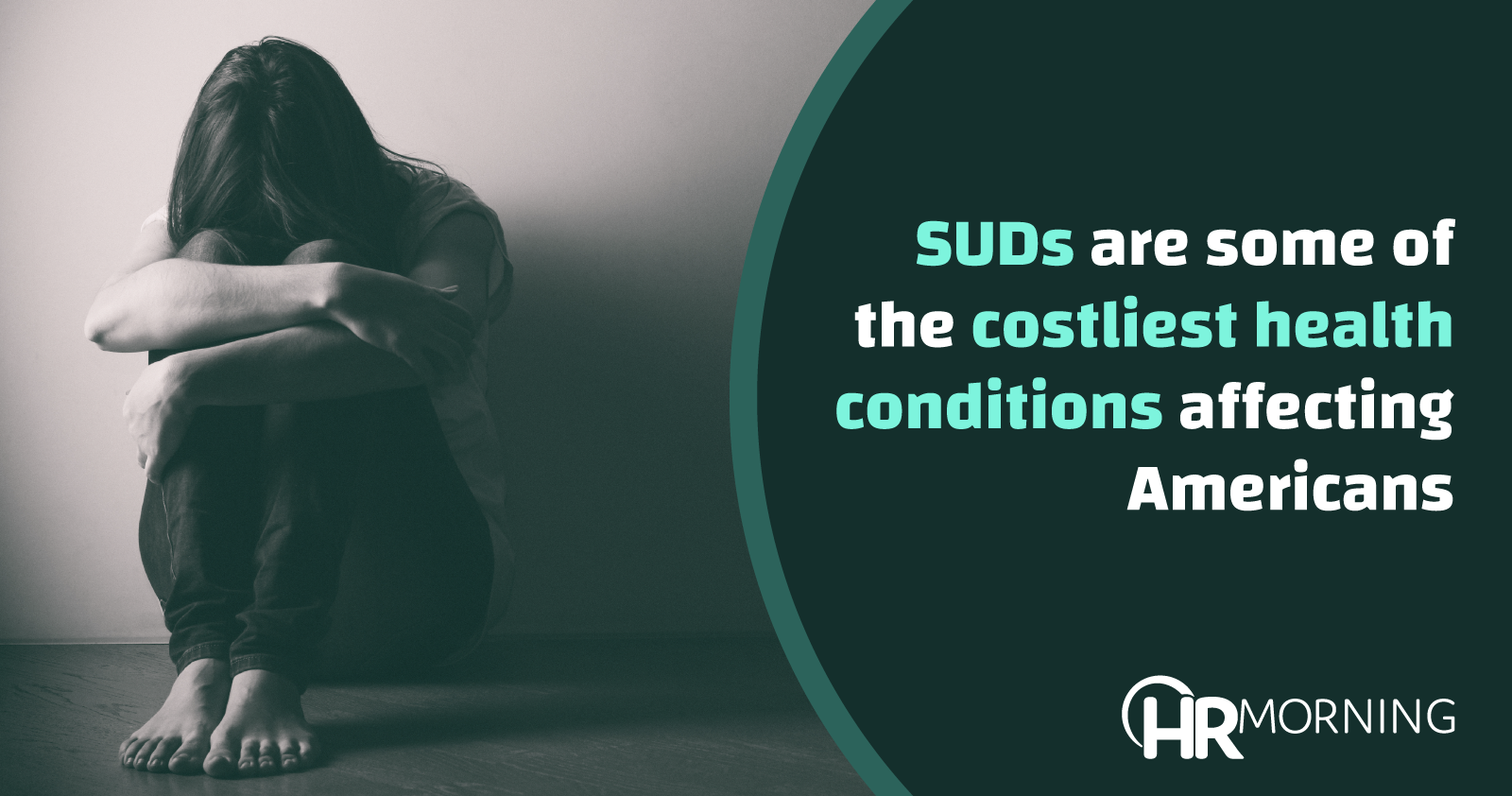Did you know that 70% of people who use illegal drugs are employed either full- or part-time? How about the fact that one in 10 adults will have or have had a diagnosable substance use disorder (SUD) in their lifetime? And finally, 75% of people with a SUD don’t get any form of treatment.
Why are we telling you this?
Because SUDs are some of the costliest health conditions affecting Americans, and the most common, according to the Recovery Centers of America. This is especially true over the past three years as people try to cope with all the negative impacts the pandemic has had.
If you’re thinking, “Our employees don’t have SUDs” you may want to take a closer look. People with SUDs are often very good at hiding them.
It’s very likely you have a few employees with SUDs, which include disorders related to alcohol, tobacco, prescription medications and other drugs.
The cost of addiction
It’s estimated that SUDs cost employers $81 billion annually due to lost productivity, absenteeism, turnover, recruitment costs, workplace accidents, healthcare expenses, and disability and workers’ compensation, according to the National Council on Alcoholism and Drug Dependence. These costs can be incurred via:
- Hangovers and withdrawal (poor job performance)
- Preoccupation with using or obtaining substances while at work (poor attention and concentration)
- Selling/giving drugs to other employees (lack of focus on work), and
- Psychological and stress-related effects of drug use (lack of focus and poor job performance).
2021 saw the highest death toll ever due to drug overdoses, according to the Centers for Disease Control and Prevention.
How can you help employees with SUDs?
First, keep in mind SUDs are protected disabilities under the Americans with Disabilities Act. That means people with addictions have the same rights and opportunities as everyone else.
Second, it’s important to realize that SUDs go hand-in-hand with mental health conditions. Employees who suffer from mental health conditions often self-medicate. And people who have SUDs often develop depression and/or anxiety issues.
Creating a stigma-free work culture allows employees to get the help they need.
One way to do that is to address the stigma of SUDs and mental health, and build awareness of them and their ties to each other. Employee assistance programs (EAPs) are beneficial when addressing mental health issues. After all, managers aren’t counselors, so for them to have EAPs to direct workers to is a great resource for managers and employees.
“Leveraging an employer’s EAP is a key first step for individuals looking for mental health support,” said Katie Archer, director of health plan strategy at The Hartford. “The cost of care and finding the time to see a specialist are two common obstacles to receiving care. An employer’s EAP addresses both of those points.”
The Hartford also provides education about substance misuse and addiction. Everything from management training to webinars by the company’s EAP is done throughout the year. They also partner with the National Alliance on Mental Illness and Shatterproof to put on events for employees. In addition, they provide spaces for employees to share their experiences.
“We want an informed workforce,” said Archer. “This goes a long way to help reduce stigma.”
Awareness and acceptance
In addition to creating awareness, another step to breaking down stigmas is encouraging acceptance and challenging false beliefs.
Help employees see that mental and physical health are both important to a person’s happiness and well-being. Showing employees that mental health issues are just as treatable as most physical health issues can be an eye-opener for them.
When companies tackle stigma in the workplace, they make it easier for their employees to get the help they need. This translates to a faster recovery because they know what resources are available to them and how to access them – and they aren’t embarrassed to use them.
The National Alliance on Mental Illness has a program companies can use to become stigma-free.


